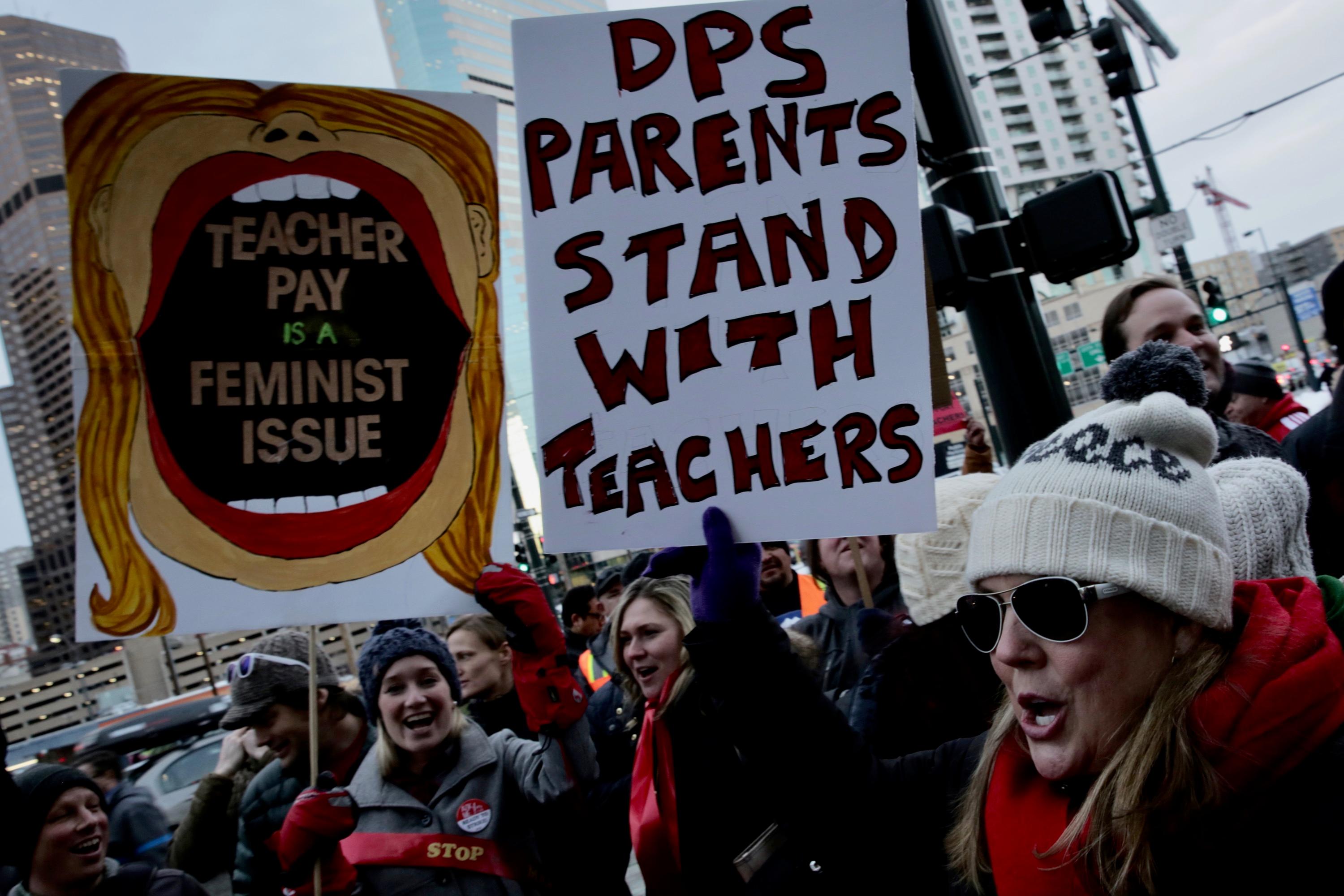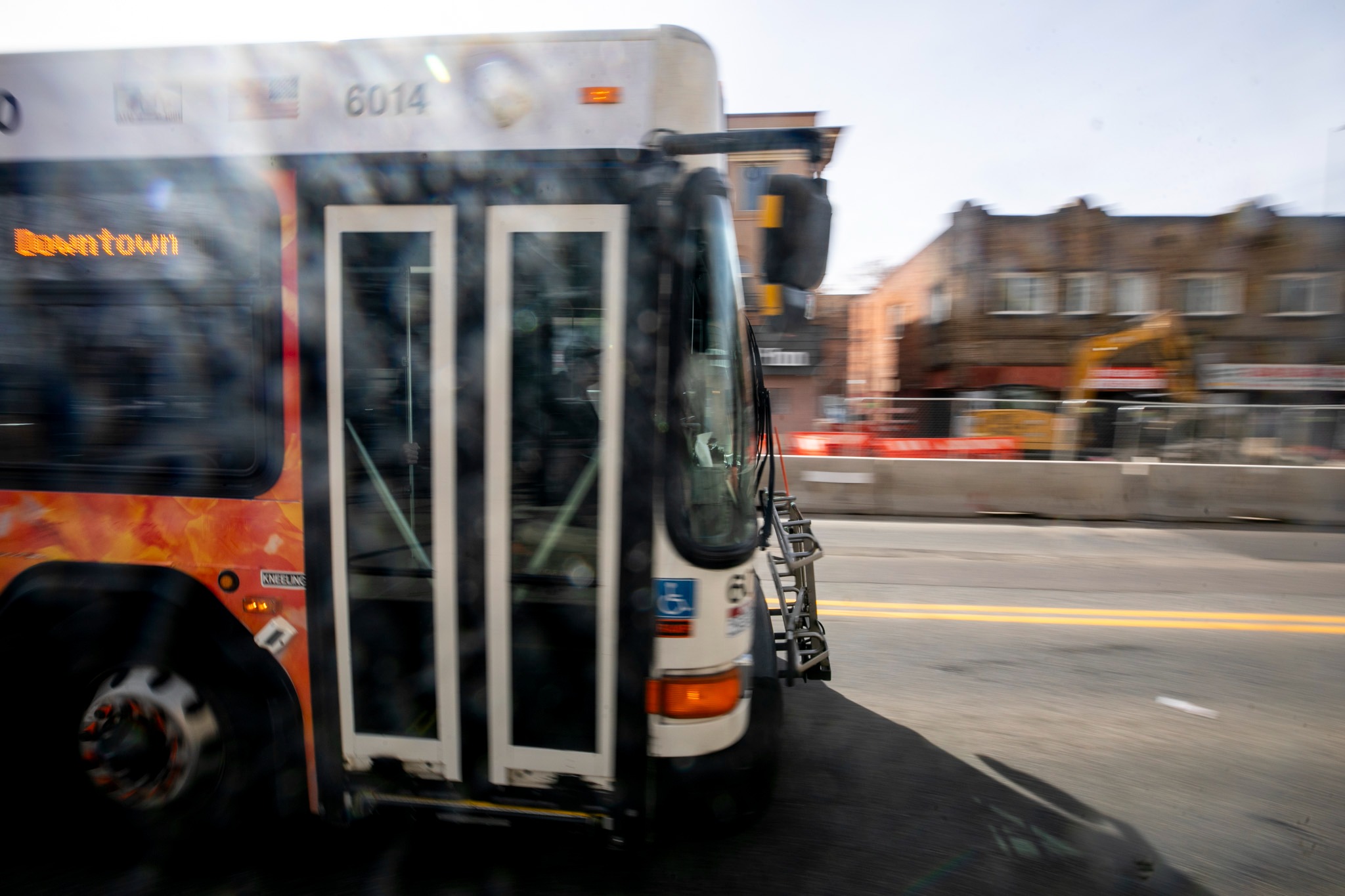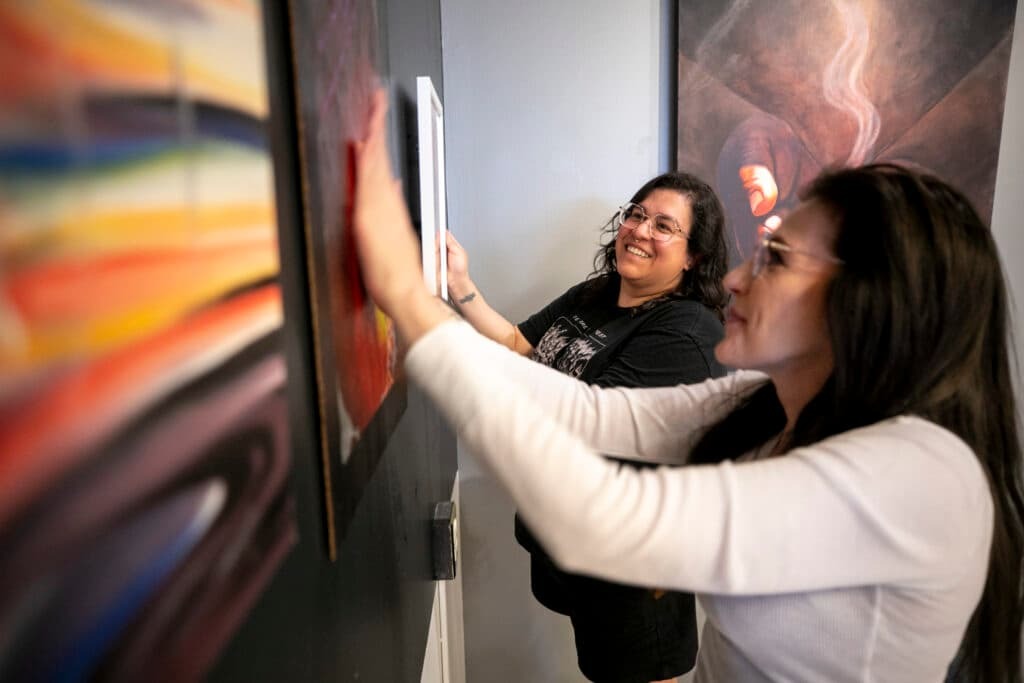

Updated 8:50 p.m. -- Denver teachers said they're ready to strike starting Monday.
The Colorado Department of Labor and Employment and Gov. Jared Polis decided to not intervene in a labor dispute between the teachers and Denver Public Schools, Colorado’s largest school district, clearing the path for educators to strike.
“We believe that the two parties are very close to a resolution and have largely achieved a mutual understanding of the facts in the areas of dispute,” according to a letter from the agency's executive director, Joe Barela. “The process should proceed without state intervention.”
Negotiations Could Continue
Denver Public Schools Superintendent Susana Cordova said the district has reached out to the union to continue negotiating, and both sides are trying to schedule a Friday bargaining session.
“It is incredibly important for our entire community that we continue to work on getting to an agreement,” Cordova said. “I think we’re very close and with continued hard work, with honest dialogue, with authentic exchange of proposals that we can actually do that. Our commitment is to be able to spend as much time as it takes to do that.”
Rob Gould, lead negotiator for the Denver Classroom Teachers’ Association union, said teachers are holding out for what they call a fair and transparent pay system that’s comparable to nearby districts.
One sticking point has been pay incentives for teachers in high-poverty schools. Gould said he expects to be talking to the district about that in the next few days.
“It hasn’t been working to retain teachers in those schools,” Gould said. “We think increasing the base pay will actually do that for teachers.”
Rob Gould, lead negotiator for DCTA, says Denver teachers are ready to stike Monday, but are willing to see what the district offers before then.
It's also freaking freezing out here. #copolitics pic.twitter.com/uzxib1Sq0c
Gould spoke at a rally on the west steps of the state Capitol. A couple dozen other teachers stood in the bitter cold to thank Polis for not intervening in the strike negotiations.
Rachel Davis, a choir and drama teacher at McAuliffe Manual Middle School, said the announcement set off a round of tap dancing in her classroom.
“We were getting pretty restless, pretty angry, so we are really happy that he finally had the courage to step up and make the right decision,” Davis said.
Where The Two Sides Stand
Teachers and the district disagree on whether teachers in 30 “high priority” schools should receive a $2,500 incentive, with the union preferring the money be folded into base salaries. The DCTA also wants the district to honor professional development units or in-service trainings as a way to advance in salaries as other school districts do.
Cordova said the two sides are about $8 million apart, but said by keeping the “high poverty” incentives that the union opposes, makes the spread larger. She wants to “have dialogue” in this area so both sides get an agreement “they feel good about,” while adhering to the 2005 ballot language that ushered in the ProComp pay and incentive system.
"There are lots of places I think that we can get closer together, both on the incentives as well as on ways for teachers to grow their base salary," she said. What needs to change is a willingness on both sides to work and get “closer and closer,” she added, noting that Denver schools in 2019 are funded at below pre-recession levels.
Polis came ready with white boards. They details points of agreement between DPS and DCTA pic.twitter.com/zJYYa115PN
Gov. Jared Polis is still strongly urging the Denver teachers union and the district to return to the negotiating table to avoid a strike. He said Wednesday he believes the current contract negotiations shouldn’t focus on larger philosophical concerns.
"Both sides can’t use this negotiation for something that it’s not. The teachers have a number of other issues with the way the district has been run, but in a contract negotiation what’s on the table is how teachers get paid and the gaps are very narrow," he said at a press conference.
Strike Preparations Begin
Denver Public Schools is now working to both reopen negotiations and prepare schools for a strike.
A strike would impact 5,353 teachers and specialized service providers (including social workers, psychologists and speech language pathologists) in district-managed schools. There are 71,000 students across 147 schools.
Cordova expects all schools to remain open in the event of a strike Monday with the notable exception of early childhood classrooms. There are 4,714 preschool students in the district.
“Based on the licensing requirements, the training and the background checks that are necessary for all educators in early childhood classrooms, we do not believe that we are going to be able to staff those classrooms and meet those high standards,” Cordova said.
She added that school during a strike “will not look and feel the same way.”
“It’s never normal when you go into school and your teachers aren't there, when we have a large numbers of substitutes, it never feels normal,” Cordova said. “There will be disruptions, you know, if we have teachers on a picket line, that's a disruption in terms of how kids even enter into the building.”
The district said it will know by Monday how many teachers plan to strike, how many substitutes are available and will notify parents if there are schools that must be closed. It's carrying out an “extensive” process to get central office employees who are licensed and unlicensed alike ready to teach, as well as recruiting substitute teachers. Cordova did not provide a number of substitutes the district has at its disposal.
In the event of a Monday strike, state law allows the labor department to intervene at any time. The Labor Department’s Barela said in the letter that if a strike is "needlessly prolonged" due to bad faith or a breakdown of the current negotiations process, the state could intervene.
"We are also aware of the hardships a strike might inflict on Colorado children and families. For all of these reasons, we will be watching closely as the parties return to the negotiating table," Barela wrote.
In a statement, the Denver Classroom Teachers Association reaffirmed that voting to strike was not an issue taken lightly, but the only means to achieve teacher goals.
“No teacher wants to strike, we would rather be teaching students in our classrooms. But when the strike starts, we will be walking for our students,” said Denver teacher and union president Henry Roman in a statement. “The district’s revolving door of teacher turnover must stop. DPS must improve teacher pay to keep quality, experienced teachers in Denver classrooms.
CPR News reporter Sam Brasch contributed to this story.









